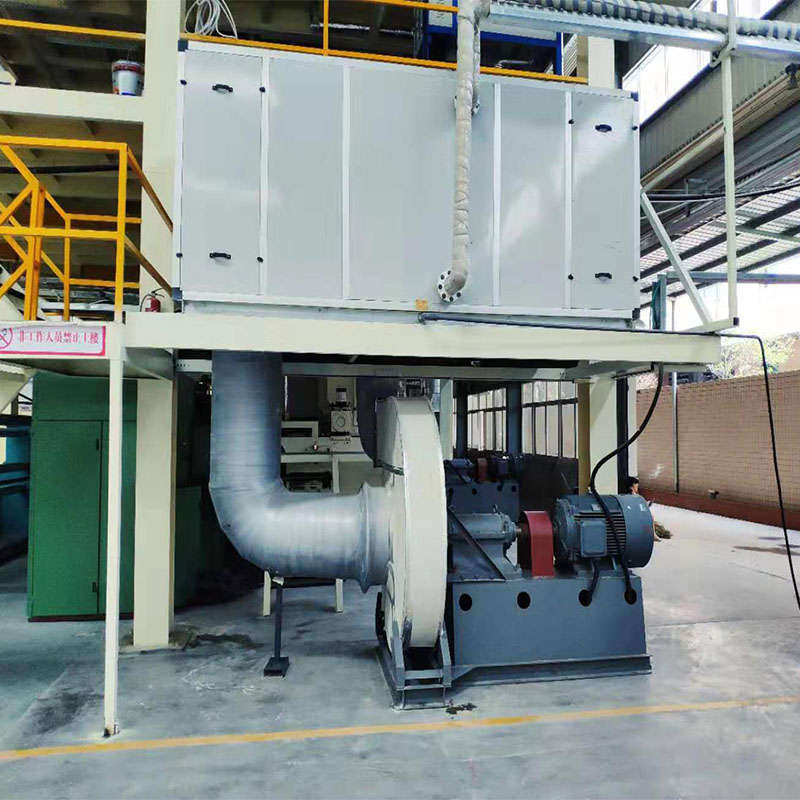In the realm of textile manufacturing, the PP spunbond nonwoven fabric making machine stands as a game-changer, revolutionizing the production of versatile and eco-friendly nonwoven fabrics. This comprehensive guide delves into the intricacies of the PP spunbond nonwoven fabric making machine, exploring its benefits, applications, and the remarkable properties of the nonwoven fabrics it produces.

Understanding PP Spunbond Nonwoven Fabric Making Machine:
The PP spunbond nonwoven fabric making machine employs a unique technology to transform polypropylene (PP) resins into continuous filaments, which are then bonded together to form a strong and durable nonwoven fabric. This process involves several stages, including extrusion, spinning, drawing, and bonding, each contributing to the exceptional qualities of the final product.
Benefits of PP Spunbond Nonwoven Fabric Making Machine:
- High Production Efficiency:
The PP spunbond nonwoven fabric making machine operates at high speeds, producing large quantities of nonwoven fabric in a short time frame. This efficiency translates to significant cost savings and increased productivity for manufacturers. - Versatile Fabric Production:
The machine offers great versatility in terms of fabric weight, width, and color, allowing manufacturers to cater to a wide range of applications and customer requirements. - Eco-Friendliness:
PP spunbond nonwoven fabrics are made from recyclable polypropylene, making them an environmentally friendly alternative to traditional woven fabrics. Additionally, the production process generates minimal waste, further reducing its ecological footprint. - Excellent Fabric Properties:
Nonwoven fabrics produced by the PP spunbond nonwoven fabric making machine exhibit exceptional properties, including high strength, tear resistance, and water repellency. These qualities make them suitable for a diverse range of applications. - Cost-Effectiveness:
Compared to conventional textile manufacturing methods, the PP spunbond nonwoven fabric making machine offers significant cost advantages. The use of polypropylene resin, coupled with efficient production processes, results in cost-effective nonwoven fabrics.
Applications of PP Spunbond Nonwoven Fabrics:
The versatility of PP spunbond nonwoven fabrics has led to their widespread adoption across various industries, including:
- Medical and Hygiene: Nonwoven fabrics are used in disposable medical gowns, surgical masks, and hygiene products due to their excellent barrier properties and softness.
- Agriculture: Nonwoven fabrics serve as protective covers for crops, providing frost protection and weed control.
- Automotive: Nonwoven fabrics are employed in car interiors as headliners, trunk liners, and sound insulation materials.
- Packaging: Nonwoven fabrics are used as cushioning materials, void fillers, and wrapping materials in packaging applications.
- Construction: Nonwoven fabrics are utilized as underlayments for flooring, roofing membranes, and insulation materials.
